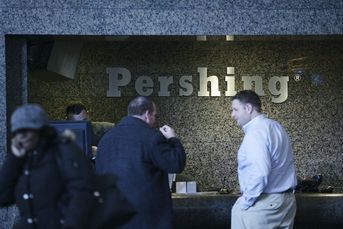Are robos making clients think that 1% fee is steep?

Study finds 20% of investors strongly agree that the investment advice by advisers isn't worth the cost.
When it comes to fees, the sweet spot for advisers tends to be 1%. However, as low-cost automated investment services proliferate, many investors don’t agree.
A Greenwald & Associates and GDC Research study that surveyed 1,000 investors found that 20% of respondents strongly agreed that advisers’ investment advice was not worth the 1% fee they charged.
There is some good news for advisers, though. Only one in four investors said that they find robo-advice appealing, and many want to communicate with an adviser. Some are simply second-guessing the price of traditional financial advice.
“As the old adage goes, pricing becomes a problem in lieu of value,” said Dennis Gallant, president of GDC Research. “There will be more scrutiny … what are they getting for that 1% fee?”
Robo-advisers, which offer automated investment services at a fraction of the fees that advisers charge for their more comprehensive services, are becoming more and more prevalent in the market. The rise in awareness of robo options is the driving force behind many investors’ increasing level of fee sensitivity.
Charles Schwab & Co. has launched its own robo platform Schwab Intelligent Portfolios, which is free, and other robos like Wealthfront and Betterment offer services for 25 basis points and 15-to-35 basis points, respectively. All three of those have surpassed $200 million in assets under management and continue to grow.
“I do see an impact when it comes to fees and fee structures because of a heightened awareness of the fact that robos are a lower-cost model,” said Matt Lynch, managing partner of Strategy & Resources, a financial services consulting firm.
Tom White, the founder and chief executive of iQuantifi, an online investment platform, said that robos have definitely put pressure on advisers, who may consider lowering the price they charge or changing their fee structure from being based on assets under management.
Mr. White said that all this debate about the value of an adviser is contingent upon the market, though.
“All of this is happening in the midst of a bull market,” Mr. White said. “I would argue during the next bear market, cost is not going to be so much the focus.
“Those that can provide value over and above [benchmark] returns are going to be the winners,” he said.
Mr. Gallant also said that advisers shouldn’t look at robos as competitors. He said people will pay a premium price for premium, high-touch service, and that’s how advisers can showcase their value.
Jon Ulin, founder of Ulin & Co. Wealth Management in Boca Raton, Fla., said that there are a variety of features that make advisers’ work more impactful than online platforms, including measuring risk tolerance, tracking performance in the context of each investor’s goals, and providing answers to questions and a supportive relationship when times are hard.
“Sitting down with me and paying 1%, I believe, is as strong as meeting with your doctor or nutritionist,” Mr. Ulin said.
Professionals can help benchmark where a person is in the most important areas of his or her life, especially gauging the health of that person’s finances.
How an investor wants to manage their investments and the type of relationship they would like to have with an adviser are also crucial in determining whether the 1% fee is worth it.
In a Hartford Funds study of 500 investors, only 32% of respondents valued financial performance more than a good personal relationship with their adviser.
That said, there will always be some investors who prefer only online investment management.
In a recent A.T. Kearney study of 4,000 investors, 4% said they were extremely likely to use robo-advisory services, 10% said they were very likely, 19% said they were likely and 36% said they were somewhat likely. And advisers will need to get in front of investors if they want to work with them.
“This is supply and demand,” Mr. Gallant said. “And right now the demand for advice is greater than supply.”
Learn more about reprints and licensing for this article.







